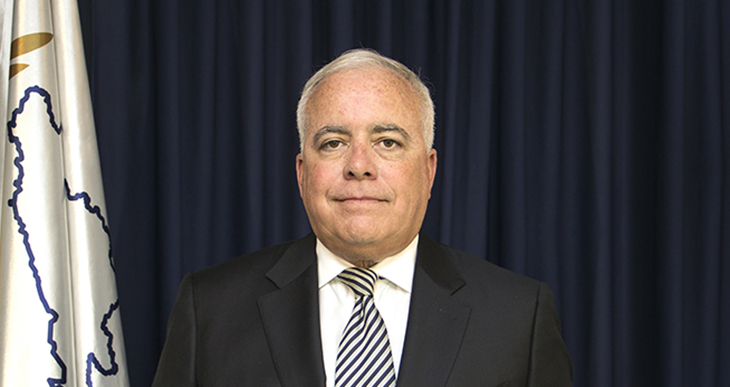LAW
ON COURTS OF BRCKO DISTRICT OF BOSNIA AND HERZEGOVINA
I GENERAL PROVISIONS
Article 1
(Contents of the Law)
This law shall regulate general jurisdictions, organization of courts, internal organization, jurisdiction, disqualification of judges and servants, publicity of work, financing of courts and other issues significant for functioning of the courts of Brcko District of Bosnia and Herzegovina (hereinafter: the Courts).
Article 2
(Judicial Authority)
The Basic Court of Brcko District of Bosnia and Herzegovina (hereinafter: the Basic Court) and the Appellate Court of Brcko District of Bosnia and Herzegovina (hereinafter: the Appellate Court) shall carry out judicial authority in Brcko District of Bosnia and Herzegovina.
Article 3
(Independence)
(1) The Courts shall be independent and autonomous from the legislative and executive authority.
(2) The District Courts shall rule impartially and in accordance with the decisions of the Arbitral Tribunal for Dispute over Inter-Entity Boundary in Brcko Area and Supervisory Orders passed in accordance with the mentioned decisions, the Constitution and laws of BiH, the Statute and laws of Brcko District of BiH.
(3) No one shall influence the independence and impartiality of a judge while ruling in cases that have been assigned to him/her.
(4) In their work the Courts shall act independently and impartially, timely and efficiently.
Article 4
(Establishing of Courts)
The Courts shall be established and abolished by law.
Article 5
(Protection of Rights)
(1) The Courts shall protect rights and freedoms guaranteed by the Constitution of Bosnia and Herzegovina, laws of Bosnia and Herzegovina, laws and the Statute (hereinafter: the Statute) of Brcko District of Bosnia and Herzegovina.
(2) In the proceedings they conduct in accordance with law the Courts shall protect rights granted by the European Convention on Human Rights and Basic Freedoms in accordance with the procedures foreseen in the District laws. When dealing with cases related to accusations of violation of those rights and freedoms, the District Courts shall consider the case law of the European Court for Human Rights.
Article 6
(Constitutionality and Legality)
(1) The District Courts shall have jurisdiction to decide whether any provision of any District law, by-law or rulebook is in conformity with decisions of the Arbitral Tribunal for Dispute over Inter-Entity Boundary in Brcko Area or accordingly passed Supervisory Orders, the Constitution of Bosnia and Herzegovina, the Statute or laws of Bosnia and Herzegovina applied in the District.
(2) To the extent that laws, by-laws or rulebooks have legal effect in the District, the District Courts shall have jurisdiction to decide whether any provision of any Entity law, by-law or rulebook or law, by-law or rulebook of Bosnia and Herzegovina is in conformity with decisions of the Arbitral Tribunal for Dispute over Inter-Entity Boundary in Brcko Area or accordingly passed Supervisory Orders, the Constitution of Bosnia and Herzegovina, or the Statute.
(3) The District Courts shall have jurisdiction to decide whether any decision or resolution of the Assembly is in conformity with the decisions of the Arbitral Tribunal for Dispute over Inter-Entity Boundary in Brcko Area or accordingly passed Supervisory Orders, the Statute, the Constitution of Bosnia and Herzegovina, laws of Bosnia and Herzegovina applied in the District or the District laws.
(4) The District Courts shall have jurisdiction to decide whether any legal document of any District institution or any legal document of any institution of Bosnia and Herzegovina or any Entity institution with legal effect in the District is in conformity with the decision of the Arbitral Tribunal for Dispute over Inter-Entity Boundary in Brcko Area or accordingly passed Supervisory Orders, the Constitution of Bosnia and Herzegovina, the Statute, laws of Bosnia and Herzegovina applied in the District, laws of appropriate Entity or a District law. When it comes to individual legal documents it may be foreseen in the District laws that the administrative dispute proceeding must be completed prior to the District Courts’ taking over the jurisdiction provided in this paragraph.
(5) The Courts may initiate an assessment procedure of constitutionality of District laws in relation to appropriate provisions of the Constitution and laws of Bosnia and Herzegovina, and in accordance with Article 6, Paragraph 3, Item c of the Constitution Bosnia and Herzegovina.
Article 7
(Reconsideration of Court Decisions)
Only a competent court may reconsider court decisions on the basis of legal remedies in a legally prescribed procedure.
Article 8
(Binding Character of Court Decisions)
Decisions of all courts in Bosnia and Herzegovina shall be binding for the courts of Brcko District of Bosnia and Herzegovina.
Article 9
(Publicity and Transparency)
(1) The work of the Courts shall be public unless otherwise determined by law.
(2) Transparency of work of a court shall be provided through public hearings before the Courts, publishing the composition of the court, informing the public about the course of a court proceedings under conditions stipulated by law. Transparency may also be achieved by publishing court decisions and other information of interest to the public.
Article 10
(Composition of the Courts)
(1) The Courts shall try as single judges or panels of judges, and in certain legally stipulated cases professional assistants may also try.
(2) All first instance cases shall be tried by a single judge, and a panel of 3 (three) Basic Court judges shall try in criminal cases for which a prescribed time of imprisonment exceeds 10 (ten) years.
(3) The composition of a panel shall be determined by law.
(4) A judge who tried during the first instance proceedings may not participate in appeal proceedings of the same case.
(5) Unless otherwise prescribed by law, a panel of 3 (three) Appellate Court judges shall decide on regular and extraordinary legal remedies filed against Basic Court decisions.
Article 11
(Official Languages)
(1) The official languages spoken in the Courts shall be the languages of Serb, Bosniak and Croat peoples, and Latin and Cyrillic shall be the official alphabets.
(2) The Court shall conduct proceedings and render decisions in the language spoken by a judge in charge of the proceedings or in the language determined by the Panel Chair, providing that a party, at his or her request, may be provided a translation during a hearing or a translation of the court decision in the language the party speaks during the proceedings, where in criminal proceedings the Court shall cover the expenses and in all other proceedings the expenses shall be covered by the party. Parties may submit written petitions to the Court in any of the official languages.
Article 12
(Official Identity Cards)
(1) Judges shall be issued official identity cards.
(2) A special rulebook of the High Judicial and Prosecutorial Council shall regulate the form and appearance of the official identity card, and it shall be issued by the Judicial Commission of Brcko District of Bosnia and Herzegovina (hereinafter: the Judicial Commission).
Article 13
(Judges’ Toga)
(1) Judges shall wear togas during trials and public announcement of decisions.
(2) A special rulebook of the High Judicial and Prosecutorial Council shall regulate the appearance of the toga, and the Judicial Commission shall provide for its fabrication and distribution.
Article 14
(Affiliation Symbols)
Judges shall not display symbols of religious, political, national or other affiliation, neither shall such symbols be displayed anywhere inside the Court premises.
Article 15
(Seal)
(1) The Courts shall have a seal in accordance with law.
(2) The Basic Court shall have a round seal with the following round print in Latin and Cyrillic letter: “Bosnia and Herzegovina, Brcko District of BiH, Basic Court”, and in its middle a coat-of-arms of Bosnia and Herzegovina shall be impressed.
(3) The Appellate Court shall have a round stamp with the following round print in Latin and Cyrillic letters: “Bosnia and Herzegovina, The Brcko District of BiH, The Appellate Court”, and in its middle a coat-of-arms of Bosnia and Herzegovina shall be imprinted.
Article 16
(Cooperation and Legal Assistance)
(1) The Courts shall be obliged to mutual cooperation, cooperation with the state bodies and foreign courts.
(2) In matters within their jurisdiction the Courts shall render legal assistance to other courts in Bosnia and Herzegovina and abroad in accordance with law and international agreements.
(3) The Courts shall be authorized to request other state bodies to submit them information necessary for conducting court proceedings. State bodies shall be obliged to submit their reply in a timely manner and act in accordance with the request of the Courts.
(4) The Courts shall be obliged to inform the Public Attorney’s Office of Brcko District of BiH if during proceedings they establish that it is necessary to undertake measures for protection of rights and interests of the District or other institutions that, according to law, are to be represented by the Public Attorney’s Office.
II ORGANIZATION AND JURISDICITON OF THE COURTS
1. Organization of the Courts
Article 17
(Courts in Brcko District of Bosnia and Herzegovina)
The Courts in Brcko District of Bosnia and Herzegovina shall be the Basic and Appellate Courts.
Article 18
(Basic Court)
The Basic Court shall be established for the area of the District in accordance with the Statute.
Article 19
(Appellate Court)
The Appellate Court shall be established for the area of the District in accordance with the Statute.
Article 20
(Discharge of Duties Within and Outside a Court’s Seat)
(1) The Courts shall discharge duties within their jurisdiction within their seat, the town of Brcko.
(2) The Courts may also discharge duties within their jurisdiction outside their seat for reasons of efficiency, reduction of costs or other practical purposes.
2. Substantive Jurisdiction
Article 21
(Basic Court)
The Basic Court shall have jurisdiction:
01.In criminal cases to:
a) try in the first instance:
- all criminal acts;
- all criminal acts the jurisdiction of which the Court of Bosnia and Herzegovina transferred to the Basic Court;
b) act during investigation and after raising indictment in accordance with law;
c) decide on revoking a ruling and cessation of security measures and legal consequences of a ruling, based on the Court’s decision;
d) act upon petitions for pardon in cases within its jurisdiction in accordance with law.
02.In minor offence cases to:
- undertake all legally prescribed actions in resolving minor offence cases;
- undertake legally prescribed actions in implementing pronounced minor offence sanctions.
03.In civil cases to try in the first instance:
- all civil disputes;
- out-of-court proceedings
- administrative disputes
- all economic disputes;
- bankruptcy and liquidation proceedings, in accordance with law, as well as all proceedings arising during and due to conducting of bankruptcy and liquidation proceedings;
- disputes about assessment of constitutionality, compliance with the Statute and legality.
04.In other cases to:
a) conduct enforcement procedure;
b) determine security measures if not otherwise determined by law;
c) rule in special proceedings if not otherwise determined by law;
d) conduct land-book affairs if not otherwise determined by law;
e) render legal assistance to courts in BiH;
f) render international legal assistance;
g) keep register of legal entities if that is determined by law;
h) act upon requests for exercising right to legal aid in accordance with Article 13 -21 of the Law on Legal Aid Agency of Brcko District of BiH;
i) discharge other duties determined by law.
Article 22
(Appellate Court)
(1) The Appellate Court shall have jurisdiction to decide on:
- regular legal remedies submitted against the Basic Court decisions;
- extraordinary legal remedies submitted against valid court decisions.
(2) Judges who took part in ruling upon an appeal shall not participate in deciding on extraordinary legal remedies.
Article 23
(Law Constitutionality Assessment)
The Courts may institute a law constitutionality assessment with the Constitutional Court in accordance with the Constitution and appropriate rules which regulate this procedure before the Constitutional Court.
III INTERNAL ORGANIZATION OF THE COURTS
Article 24
(Exercise of Court Function)
The President, judges, servants and employees shall discharge duties within the jurisdiction of the Court.
Article 25
(Court President)
(1) The Court President shall be responsible for management and supervision of the overall work of the Court and court administration.
(2) The President shall represent the Court before other bodies and organizations.
(3) The President may transfer some of his/her competencies to judges or court servants, except for supervision of the work of judges.
(4) The Court President shall appoint another judge to discharge duties of the President of the Court during his or her absence.
Article 26
(Duties of the Court President)
(1) The Court President shall assign cases to judges and panels. If there is no basis for an disqualification, prescribed by Article 43 of this Law and determined in separate laws, a case assigned to a certain judge, i.e. panel may be assigned to another judge, i.e. panel only for a justified reason.
(2) The President shall be obliged to maintain the integrity, independence or professionalism in the work.
(3) The President shall be obliged to issue general instructions to servants and employees in carrying out their duties and responsibilities.
(4) The President shall be obliged to organize the work and ensure that the Court employees respect the law, perform their job conscientiously and without prejudice.
(5) The Court President, and in his/her absence a person who according to this law acts as his/her replacement, shall inform the public about the work of the Court.
Article 27
(Court Secretary)
The Basic and Appellate Courts shall have a Secretary whose title is “The Secretary of the Court of Brcko District of Bosnia and Herzegovina”.
Article 28
(Qualifications and Work Experience of the Court Secretary)
A graduate lawyer, who passed the bar exam and who has at least 2 (two) years of experience in legal affairs, after passing the bar exam, may be employed as the Court Secretary.
Article 29
(Court Secretary’ Duties)
(1) The Court Secretary shall be responsible to the Court President for the performance of his or her duties.
(2) The Court Secretary shall be responsible for proper and timely performance of administrative duties in the Basic and Appellate Courts, and shall work under the management of the Appellate Court President.
(3) The Judicial Commission shall appoint and dismiss the Court Secretary.
Article 30
(Court Departments)
Court departments may be founded with the Courts for the purpose of deciding on issues from the same legal area.
Article 31
(General Panel)
(1) The general panel shall be composed of all judges of the respective court.
(2) The general panel shall be convened and run by the Court President.
(3) The general panel shall be convened at times foreseen by the rules of the Court.
(4) For its decisions to be valid at least two thirds of judges shall be present at the general panel and the decisions shall be passed by the majority vote of present judges.
Article 32
(Collegiate Body of Judges)
In cases when a law or an internal act of the Court prescribe that decisions on certain issues within the Courts’ jurisdiction shall be passed by the collegiate body of the Court, then such a collegiate body shall consist of the President, judges and the Secretary.
Article 33
(Regulations on Internal Organization and Court Operation)
(1) The High Judicial and Prosecutorial Council shall pass the Rulebook on the Court Operation which shall regulate internal operation of the Court and its organizational units.
(2) The Court President shall enact the Rulebook on Internal Organization of the Court and Systematization of Work Posts with the consent of the Judicial Commission of Brcko District of BiH.
(3) Upon granting the consent, the Court President shall submit the Rulebook on Internal Organization of the Court and Systematization of Work Posts to the High Judicial and Prosecutorial Council of BiH.
IV JUDICIAL ADMINISTRATION
Article 34
(Monitoring the Work of the Courts)
(1) The High Judicial and Prosecutorial Council shall monitor the implementation of this Law and other regulations relating to organization and work of the Courts and work on managing the Courts and court administration.
(2) The Courts shall be obligated to submit all required data to the High Judicial and Prosecutorial Council.
Article 35
(Statistical Data)
The Judicial Commission shall review statistical and other data it needs for discharging of duties regarding the budget as well as duties towards the Statistics Bureau of Brcko District of BiH. The Courts shall submit these data to the Judicial Commission upon request.
Article 36
(Work Reports)
(1) At the end of each calendar year the court shall submit an annual report on its work to the High Judicial and Prosecutorial Council of BiH, in accordance with the submitted forms.
(2) At the end of each calendar year the court shall submit a report on its work to the Judicial Commission of Brcko District of BiH, and the Basic Court shall every six months submit a report on its work to the Appellate Court, and the report shall obligatorily as a minimum contain the following:
- number of cases transferred to the reporting period, number of received, resolved and unresolved cases in the reporting period,
- number of resolved cases per divisions and judges,
- quality of decisions.
Article 37
(Information Technology)
Only with a prior approval of the High Judicial and Prosecutorial Council, the court may introduce a computer or automated system of tracking and registration of cases, or a similar system.
V JUDGES
Article 38
(Implementation of Other Regulations)
(1) Provisions of the Law on High Judicial and Prosecutorial Council prescribed the conditions and term for exercising the duty of a judge, appointment of judges, disciplinary accountability of judges, temporary removal of judges from office, incompatibility of the duty of a judge with other duties, the end of term of judges, immunity in performing duties, establishment of criteria for assessing the work of judges.
(2) Relevant regulations applied in Brcko District of BiH and relating to the employment and legal status of members of the Government shall be accordingly applied to judges unless prescribed otherwise by this Law, the Law on High Judicial and Prosecutorial Council of BiH and the Law on Salaries and Other Compensations for Judges and Prosecutors of Brcko District of BiH.
Article 39
(Appointment of Judges)
The President and judges shall be appointed and dismissed by the High Judicial and Prosecutorial Council of BiH.
Article 40
(Personal Qualities of a Judge)
In all official and private activities, a judge’s duty shall be to respect and support the rule of law, avoid appearance of impropriety, and act in a manner that promotes public confidence in the integrity, independence and professionalism of the court.
Article 41
(Conflict of Interests)
(1) Judges may establish professional associations.
(2) Judges may not be members of political parties, support political candidates or platforms of political parties, or in any way be involved in a political activity.
(3) Judges may not discharge any other duty in public or private sector during their term, neither can they perform any other work.
Article 42
(Evaluation)
(1) Judges shall be evaluated once a year.
(2) The Court President shall evaluate judges. The President of the Appellate Court shall evaluate the President of the Basic Court, and the High Judicial and Prosecutorial Council shall evaluate the President of the Appellate Court.
Article 43
(Disqualification of Judges)
(1) A judge shall be disqualified in the following cases:
- if he is a party in the case;
- has a joint title, joint obligation or regressive obligation in relation to a party in the case;
- has a vested interest in the outcome in the case, directly or indirectly;
- if he has a familial relation to any of the parties, either by blood or marriage. This includes, but is not limited to:
(a) those in direct line of ascent or descent
(b) those in collateral line such as siblings; - if he has or has previously had a close ongoing relationship with one of the parties;
- if he is or has been a guardian of anyone who is a party in the case;
- if he has previously acted in the case for either party in a role other than judge;
- if he is related by blood or marriage to anyone who acts in the case for a party or for the prosecuting authority or the injured party;
- if he has previously had something to do with the case while acting in a different capacity;
- if he is related by blood, marriage, or engagement to anyone who is involved in the case.
(2) Anyone who participates in a case as a judge may not be an expert in the case.
(3) A judge may not be a witness in a case. Should it be established that the judge has relevant information in relation to the ongoing case, he shall be disqualified from further official judicial duties in the case and be directed to present the evidence in his possession to the relevant court.
(4) A judge may not participate in a case where circumstances exist which serve to weaken confidence in his impartiality. This part of the Law shall be given special attention if a party in the case makes a demand to the court to disqualify a judge on the basis of this Law.
(5) Judges shall request their disqualification from participating in a case if a person would reasonably question their impartiality in the matter.
Article 44
(The Procedure of Disqualification of a Judge or a Member of a Panel)
(1) If a judge finds there are circumstances entitling the parties to request his disqualification, he shall immediately make a full disclosure of the circumstances to the parties.
(2) Before proceeding in a case the presiding judge shall inform the parties of the disqualification standards set forth in Article 43 of this Law.
(3) No judge may decide, when challenged, whether he is to be disqualified.
(4) If the question of disqualification or recusal is raised prior to the commencement of proceedings, the issue must be decided immediately by the Court President.
(5) The Court President shall decide on disqualification of judges. The President of the Appellate Court shall decide on disqualification of the President of the Basic Court, and the General Panel of the Appellate Court shall decide on the disqualification of the President of the Appellate Court.
(6) There shall be no appeal against the decision adopting or rejecting a request for disqualification, but the decision rejecting the request for disqualification may be challenged by an appeal against the ruling.
Article 45
(Personal Records)
The court shall keep personal records for every judge and they contain personal data and data about the expertise of a judge as well as other data on the judge gathered in the court, in accordance with the law. The judge shall have the right to access his files and the right to ask for a correction if the data is inaccurate.
Article 46
(Obligation of Professional Training)
Judges shall have the obligation of professional training in accordance with the training program of the Judicial Commission of Brcko District of BiH and the Centre for Education of Judges and Prosecutors.
Article 47
(Financial Disclosure)
Judges of District Courts shall individually submit to the District Assembly their annual financial disclosure statements on their total income, sources, property and debts, as well as income, sources, property and debts of close family members up to direct line of ascent or descent, and the manner in which they obtained them.
VI SERVANTS AND EMPLOYEES OF THE COURT
Article 48
(Number and Qualifications of Servants and Employees of the Court)
(1) The Judicial Commission shall set the criteria for determining the number of servants with legal expertise, and administrative, technical and other servants and employees needed for timely and efficient performance of the duty of a judge.
(2) The number of servants and employees, their qualifications and other terms for employment shall, in every court, be separately determined by the Rules of Internal Organization and Systematization of Work Posts in accordance with an approximate assessment of the necessary number of judges.
Article 49
(Professional Assistants and Interns)
The Courts may hire certain number of professional assistants and interns and to admit for practice interns-volunteers.
Article 50
(Professional Assistants)
(1) A graduate jurist who has passed the bar exam may be hired as a professional assistant in the court.
(2) A professional assistant shall act and decide in first instance in certain out-of-court and executive matters and disputes of little merit awarded to him by the Court President.
(3) A professional assistant shall assist the judge in matters requiring professional knowledge, analyze legal matters regarding judge’s work in particular cases, draft court decisions, maintain records on appeals, proposals, submissions and statements of parties, and shall perform other professional work prescribed by law, Rulebook on Court Affairs and other regulations, independently or supervised and instructed by a judge.
Article 51
(Interns)
(1) A graduate jurist who meets general requirements for acquiring employee status in the bodies of the District or Bosnia and Herzegovina may be admitted for practice as a judicial intern.
(2) Interns shall gradually be awarded different duties so that they could obtain necessary practical experience in all fields of work of the Courts in both judicial and administrative duties.
(3) Interns shall be employed for a definite time period until they meet the requirements to take the bar exam, and the period shall not exceed two years.
(4) The Judicial Commission shall prescribe the structure of training of interns, time they will spend in certain institutions of the Judiciary of Brcko District of BiH, duties they will perform during their internship, monitoring of their training and other provisions about their internship.
Article 52
(Interns-volunteers)
(1) The Courts may admit for practice interns-volunteers.
(2) The provisions of this Law relating to judicial interns shall accordingly be applied to interns-volunteers.
(3) Interns-volunteers shall not be entitled to any compensation for their work during their practice, neither shall they be entitled to other labor rights, unless otherwise prescribed by law.
Article 53
(Administrative Duties Independently Performed by Other Servants of a Court)
Duties not necessarily performed by judges may be awarded to servants of the court performing administrative duties. Unless otherwise prescribed by law or other regulations, servants performing administrative duties may independently perform the following activities:
01.Certify signatures;
02.Issue notification on the basis of data from the court register;
03.Issue certificates on facts on which the court keeps records;
04.Make records or official notes of brief notifications of parties and other interested persons about change of address or temporary place of residence, or the date of receiving a court decision in cases when the note of delivery has not been returned to the court or it has but there is no date of delivery on the note;
05.Take appropriate measures for collection of fines and costs of proceedings;
06.Perform other duties and tasks assigned by the President or the Secretary of the Court.
Article 54
(Employment Rights)
The provisions of the Law on Servants and Employees of the Judiciary of Brcko District of BiH shall regulate the work and legal status of all court employees who are not judicial office holders, unless otherwise regulated by this Law.
Article 55
(Personal Records)
Personal records shall be kept for servants and employees of the court and they shall contain personal data, data about expertise and other data in accordance with the Law. Persons whose data are kept in personal records shall have the right to access their files and the right to ask for correction if the data is inaccurate.
Article 56
(Performance Evaluation of Servants and Employees)
(1) Performance of servants and employees shall be evaluated annually.
(2) The President of the Appellate Court shall evaluate the performance of the Secretary of the Court.
(3) At the proposal of evaluated servant’s immediate supervisor, the President of the Court shall evaluate the performance of professional assistants and interns, and the Secretary of the Court shall evaluate the performance of other servants and employees.
Article 57
(Accountability)
Servants and employees shall be held accountable for violation of official duties and they may be subject to a disciplinary procedure in accordance with the Law and Book of Rules on Disciplinary Accountability of Employees in the Judiciary of Brcko District of Bosnia and Herzegovina.
Article 58
(Ban on Hiring Relatives)
(1) Married couples, relatives in direct line of ascent or descent and in collateral line up to the second degree, shall not simultaneously be employed in the same court.
(2) Provisions of Paragraph (1) of this Article shall not apply to servants and employees who were already employed at the time this Law entered into force.
Article 59
(Disqualification of a Servant of the Court)
The same disqualification standards prescribed in Article 43 above shall apply to court assistants-operators. The judge in charge of the proceedings shall decide on their disqualification.
Article 60
(Obligation of Professional Training)
Servants and employees shall have the obligation of professional training in accordance with the procedure prescribed by the Judicial Commission of Brcko District of BiH.
VII COURT INTERPRETERS AND EXPERTS
Article 61
(Appointment of Court Interpreters)
(1) Upon consultations with the High Judicial and Prosecutorial Council, the Judicial Commission shall enact regulations on appointment, rights and duties of permanent court interpreters, and they shall be appointed and dismissed by Presidents of Courts.
(2) Permanent court interpreters shall be appointed for a term of four years, and may be reappointed upon the expiration of their term.
(3) If an applicant’s request for appointment to the position of permanent court interpreter is rejected, he shall have the right to file an appeal against the decision to the Judicial Commission within fifteen days after the decision was received.
(4) The Courts shall use services of permanent court interpreters except in cases when there are no court interpreters for a specific language. In such cases, a court may use the services of a person fluent in the language which needs to be interpreted.
Article 62
(Appointment of Court Experts)
(1) Permanent court experts with scientific, technical or similar specialized knowledge shall be certified by Presidents of Courts after they prove they possess the knowledge, skills, experience and education. A court may invite permanent court experts to perform expert services and to testify on their opinion thus helping the court in understanding the evidence and to determine disputable facts.
(2) The applicant shall have the right to appeal to the Judicial Commission against the decision which rejects the application for the position of a court expert within fifteen days from the day of receiving such decision.
(3) Permanent court experts shall be appointed for a term of four years, and may be reappointed upon the expiration of their term.
VIII OBLIGATIONS TOWARDS THE PUBLIC
Article 63
(Confidentiality)
Judges, servants and employees of the court shall have a duty to keep confidential any information they obtain in their work concerning the parties to proceedings and legal and factual circumstances of their case and they shall also keep confidential the data not accessible to the public.
Article 64
(Official and Business Secret)
(1) Judges, servants and employees of the court shall have the duty to keep all official and business information confidential, regardless of the way they acquired it. The following shall particularly be considered as official and business secret:
- all data set as official, i.e. business secret by a law or other regulations,
- all data set as official i.e. business secret by general acts of state bodies, legal persons and other institutions,
- data and documents especially set as official, i.e. business secret by state bodies, legal persons and other institutions,
- data and documents set as official, i.e. business secret by the Court President.
(2) Obligation to keep an official, i.e. business secret shall also remain after the cessation of employment in the Court.
(3) The Court President may release a judge, i.e. servant and employee of the court from the obligation to keep an official, i.e. business secret for justified reasons in certain cases.
Article 65
(Urgent Cases)
There shall be a judge or servant on duty in case of urgent cases out of working hours.
Article 66
(Freedom of Access to Court Files)
The public shall have the right to access court files and log books in accordance with law.
Article 67
(Damage Accountability)
(1) Brcko District of BiH shall be held accountable for the damage the President, judges, servants and employees make to a natural or legal person during performance of their duties as a result of illegal or improper work.
(2) Brcko District of BiH may request the President, judges, servants and employees to compensate the paid amount of the damage only if the damage was done intentionally or in severe negligence.
(3) The request for compensation of the damage referred to in Paragraph 2 of this Article falls under the statute of limitations six month after the day the damage was paid for.
Article 68
(Complaints against the Work of Judges)
(1) A complaint against the work of a judge shall be considered as disciplinary report and the court shall conduct a procedure pursuant to this report in accordance with the Law on High Judicial and Prosecutorial Council of BiH.
(2) The procedure following a complaint against the work of a servant or employee shall be conducted in accordance with the procedure prescribed by the Law on Servants and Employees of the Judiciary of Brcko District of BiH.
IX SECURITY OF THE COURT
Article 69
(Court Police)
Court police, in accordance with relevant regulation about the court police, shall provide security of judges, servants and employees, as well as of citizens within the court building, the security of court buildings and premises, court order and execution of court orders.
X FINANCING OF WORK
Article 70
(Funds for Work of the Court)
(1) Brcko District of BiH shall provide the necessary financial and any other support in order to ensure undisturbed and proper functioning of the Courts.
(2) The Courts shall have clearly shown and separate part of the budget within the budget of the Judiciary of Brcko District of BiH.
Article 71
(Preparation and Execution of the Budget)
(1) In accordance with the prescribed procedure for budget adoption the Presidents of Courts shall develop the initial proposal of the budget of the Basic and Appellate Courts which shall then be sent to the High Judicial and Prosecutorial Council of BiH for information and possible opinions and recommendations, as well as to the Judicial Commission of Brcko District of BiH for determining the final proposal of the part of the budget concerning Judiciary institutions of Brcko District of BiH.
(2) The President shall have the right to attend Brcko District of BiH Assembly sessions and sessions of its bodies (boards, commissions, etc.) and to represent the proposed budget whenever there is a discussion or decisions are being made regarding budgetary issues relating to the Courts.
(3) The Court President shall have competence and responsibility over budget execution.
Article 72
(Salaries and Other Incomes of Judges)
(1) The Court President and judges shall have the right to salary corresponding to their judicial position, i.e. the position to which they were selected and the right to other compensations and personal income in accordance with a separate law.
(2) The Court President and judges shall have the right to pension, disability and health insurance and rights stemming from those under general regulations, and the right to paid leave and absence under the same terms for all employees in Brcko District of BiH, in accordance with a separate law.
(3) Salaries, benefits and other compensations to judges shall not be reduced during their term.
Article 73
(Donations)
(1) In accordance with law, the court may receive donations in money, items and services on condition that their acceptance does not threaten or compromise the independence and impartiality of the court.
(2) The Court President has to obtain approval from the High Judicial and Prosecutorial Council for every donation.
XI TRANSITIONAL AND FINAL PROVISIONS
Article 74
(By-Laws)
Within 6 (six) months from the day this Law enters into force, the Judicial Commission of Brcko District of BiH, i.e. the Court President shall enact by-laws needed for the implementation of this Law, or they shall harmonize the existing ones with this Law, and until then, the existing by-laws shall continue to be implemented, unless they are contrary to this Law.
Article 75
(Cessation of Legal Validity of Existing Regulations)
The Law on Courts of Brcko District of Bosnia and Herzegovina (“Official Gazette of Brcko District of BiH”, No. 4/00, 1/01, 10/01, 5/02, 6/02) shall cease to be legally valid in the territory of the District on the day this Law enters into force.
Article 76
(Entering Into Force)
This Law shall enter into force eight days after being published in the Official Gazette of Brcko District of Bosnia and Herzegovina.

















